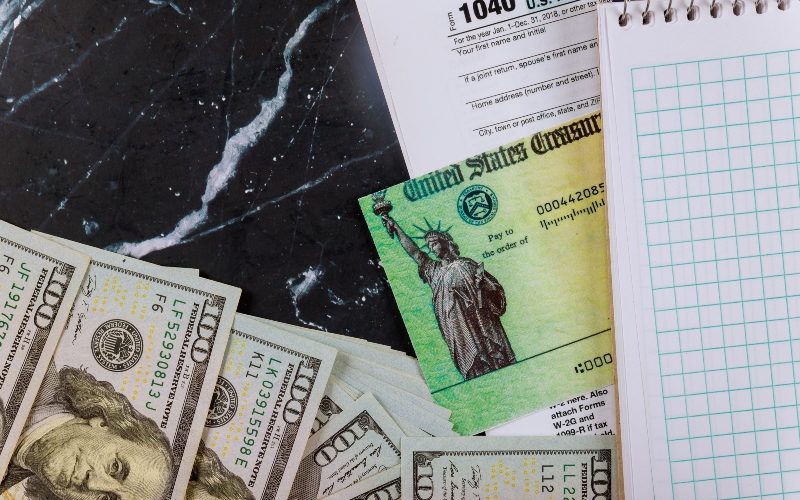Since the start of the Coronavirus pandemic, more and more Americans have abandoned a traditional 9-to-5 office job lifestyle. Instead, millions of people have used the rise of home offices, Zoom meetings, and remote work capabilities to follow their own paths. This includes starting a business, becoming an independent contractor, or simply picking up a few freelance jobs on their timetable.
As of early 2022, an estimated 11% of the 157 million workers in the United States were solely self-employed. Additionally, a more significant percentage augmented their income with “side gigs” or freelance jobs outside their normal employer’s paycheck.
Self-employment offers a lot of freedom and the opportunity to do what you love. However, it also comes with a few new hurdles when tax time rolls around. In fact, many newly self-employed people are surprised to learn that they are suddenly subjected to a tax they have never had to pay before – the self-employment tax.
What is the Self-Employment Tax?
The self-employment tax (which is technically known as the SECA tax for Self-Employment Contributions Act tax), is essentially an individual’s version of the tax that employers and employees share for Social Security and Medicare. When you have a traditional job, this cost is shared by you and your employer. However, when you collect income on your own steam, you are responsible for paying both portions of your Social Security and Medicare taxes. This equates to a total of 15.3% on 92.5% of your net self-employment earnings, including 12.4% for Social Security and 2.9% for Medicare.
Who Has to Pay the Self-Employment Tax?
As a rule of thumb, if you made more than $400 in net income from your self-employed ventures, then you have to pay the self-employment tax.
When is the Self-Employment Tax Due?
The answer depends on how much you made in self-employed income, and more importantly, how much you will owe at the end of the year. If you expect to pay more than $1,000 in your annual taxes, then you should make quarterly payments in order to avoid a penalty fee.
Different Options to Reduce the Self-Employment Tax
There is some good news, such as several deductions and ways to reduce the self-employment tax you owe right from the beginning. The 15.3% tax is only applied to 92.5% of your net earnings from self-employment. Therefore, your entire income is not affected, and deductions that lower your gross income significantly make a big difference.
For another, the self-employment tax is deductible, and you get to reduce self-employment income by half of the self-employment tax before applying the tax rate. For example, if you owe a total of $2,000 for the self-employment tax, you can claim $1,000 of this amount as a deduction. If you are in the 25 percent tax bracket, this saves you $250 in your annual taxes.
Additional Tax Deductions for the Self-Employed
Being a freelance worker, business owner, or independent contractor may mean that you are now responsible for the self-employment tax. However, it also means that you can likely take advantage of a range of new deductions. Every dollar that you spend on your business can feasibly be deductible, which includes the following below.
Home office
- You can deduct a portion of your mortgage payments, utility payments, repairs and maintenance, and other home expenses if you work remotely from your home.
Car
- If you use your vehicle to conduct business it can be used as a tax deduction. You can deduct mileage, tolls, parking fees, maintenance items, insurance, registration, and other related expenses.
Phone and internet costs
- You can also claim a deduction for your cell phone and internet services. This could even be the entire cost if you have a dedicated cell phone or internet connection for your business.
Classes, conventions, and travel
- Regardless of whether you are taking continuing education classes, traveling to conduct business, or attending conventions for networking opportunities. This includes everything from your hotel room to your class books and tuition may be deducted.
Minimize the Taxes You Owe and Partner with a Financial Advisor
If you are new to the gig market, or are just setting up your business or independent contractor status, then you should rely on a trusted financial partner to ensure you get the most deductions possible. Additionally, don’t put yourself at risk of an audit. At Saddock Financial Partners, we act as your personal CFO to ensure no stone is unturned when it comes to expenses and taxes. Also, our financial advisors do their best so that you get the largest refund possible.
Saddock Financial Partners Can Assist You with All Your Self-Employment Tax Matters
Saddock Financial Partners can be your accounting partner for the journey ahead. With the right resources at your side, you can grow your new self-employed endeavors to remarkable new heights. Therefore, you can make your side business your sole and profitable passion.




